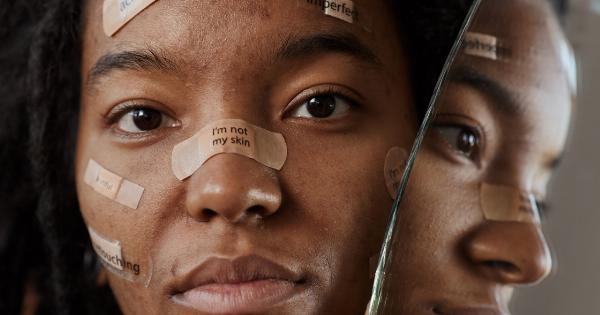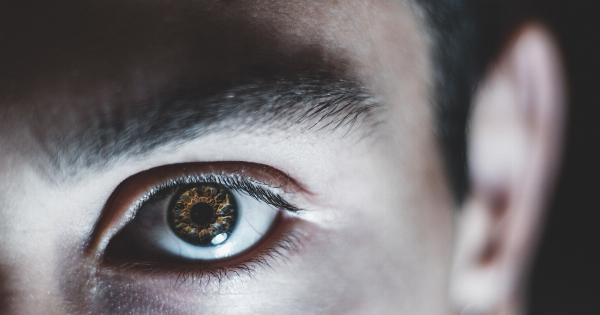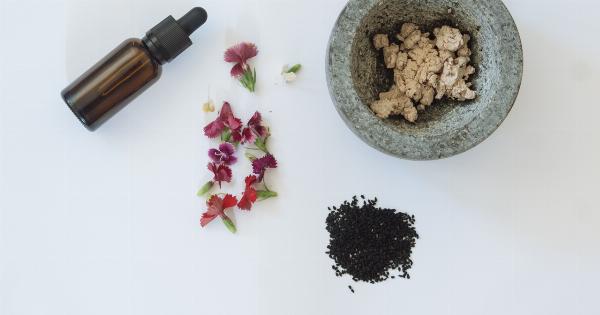Acne is a common skin condition that affects millions of people worldwide. It can cause physical and emotional distress, leading to a never-ending search for the most effective treatments and the truth about its causes.
Unfortunately, there are many misconceptions and myths surrounding acne that often cloud the facts. This article aims to debunk these myths and provide you with the truth behind acne.
Myth 1: Acne is caused by a dirty face
Contrary to popular belief, acne is not caused by poor hygiene or inadequate face washing. While it is important to keep your face clean, acne is primarily caused by hormonal changes in the body, excess oil production, and clogged pores.
These factors contribute to the development of acne, regardless of how often you wash your face.
Myth 2: Acne is only a teenage problem
Many people believe that acne is something that only teenagers experience. This is not true. Acne can affect individuals of all ages, from infants to adults.
While hormonal changes during puberty do increase the likelihood of developing acne, adults can experience acne due to hormonal fluctuations or other underlying health conditions.
Myth 3: Chocolate and greasy food cause acne
There is no scientific evidence to support the claim that chocolate and greasy foods directly cause acne. However, certain dietary factors may influence acne development in some individuals.
High-glycemic foods, such as sugary snacks and processed carbohydrates, can potentially worsen acne for certain people. It’s important to maintain a balanced diet and monitor how specific foods affect your skin.
Myth 4: Popping pimples helps them heal faster
Popping pimples may give you temporary satisfaction, but it does more harm than good in the long run. It can lead to further inflammation, infection, and scarring. It’s best to resist the temptation and allow pimples to heal naturally.
If you’re concerned about a pimple, consult a dermatologist for proper treatment options.
Myth 5: Sun exposure clears acne
While it is true that sun exposure can temporarily improve acne in some cases, the benefits are short-lived and can be outweighed by the risks of sun damage and skin cancer.
Additionally, certain acne medications can make your skin more sensitive to the sun, increasing the likelihood of sunburn or other skin issues. Always remember to use sunscreen, even if you have acne.
Myth 6: Stress causes acne
While stress can exacerbate existing skin conditions, it does not directly cause acne. However, stress hormones can increase oil production, which can contribute to further breakouts.
It’s essential to manage stress through healthy coping mechanisms, such as exercise, relaxation techniques, and seeking support when needed.
Myth 7: Acne is contagious
Acne is not a contagious condition. It cannot be passed from one person to another through touch, sharing towels, or any other means of physical contact.
It’s crucial to debunk this myth to prevent stigmatization and misunderstanding surrounding acne.
Myth 8: Oily or moisturized skin is more prone to acne
Contrary to popular belief, having oily or moisturized skin does not automatically mean you are more prone to acne. Acne is primarily influenced by hormonal factors, imbalances in the skin’s natural oil production, and other contributing factors.
However, using heavy and comedogenic (pore-clogging) products can potentially worsen acne for individuals with oily or acne-prone skin. Opt for non-comedogenic products suitable for your skin type.
Myth 9: Acne only appears on the face
While facial acne is the most common form, acne can appear on various parts of the body, including the chest, back, shoulders, and even buttocks. These areas have a higher concentration of oil glands, making them more susceptible to acne breakouts.
The treatment approach may vary depending on the affected area, but the underlying causes and management remain the same.
Myth 10: Acne will disappear on its own
While acne may improve or disappear naturally over time for some individuals, it is not the case for everyone. Leaving acne untreated can lead to scarring, hyperpigmentation, and long-term skin damage.
It’s important to seek appropriate treatment, whether it’s through over-the-counter products, prescription medications, or dermatological interventions.




























